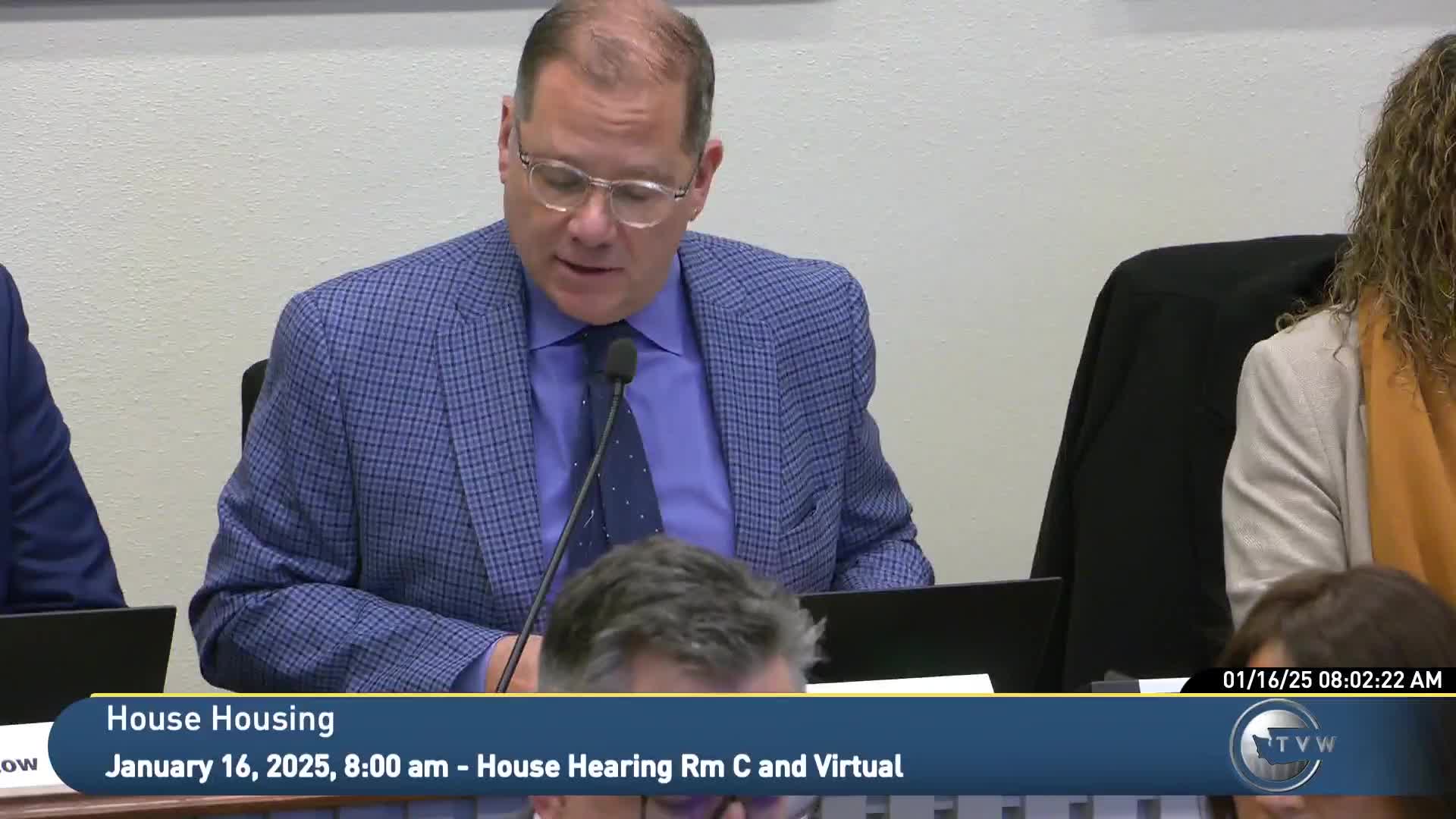Committee hears technical fix to housing-authority financing in House Bill 1075
Get AI-powered insights, summaries, and transcripts
Subscribe
Summary
House Bill 1075 received public and stakeholder testimony at the Jan. 16 meeting of the Housing Committee as lawmakers considered a technical correction intended to restore a financing tool for housing authorities.
House Bill 1075 received public and stakeholder testimony at the Jan. 16 meeting of the Housing Committee as lawmakers considered a technical correction intended to restore a financing tool for housing authorities.
The bill “clarifies that in housing authority partnerships with a private entity, 50% of the units must be reserved for, and the rents must be affordable to clients earning 80% AMI or below,” sponsor Representative Amy Wallen said during the hearing. Wallen, R‑48, told the committee that the change fixes language omitted during a 2023 update and would help housing authorities partner with private developers to build more workforce housing.
Audrey Vaisik, staff to the committee, said the bill “modifies the ability of public housing authorities to finance certain types of affordable housing developments,” and explained that the statute previously required a 20‑year affordability agreement and set eligibility and rent requirements tied to area median income.
Proponents from housing authorities told the committee the bill removes an outdated 15% AMI rent cap that prevents financing from “penciling out.” Andrew Calkins, executive director of the Bellingham and Whatcom County Housing Authorities, said housing authorities use multiple financing tools to support affordable housing and that the funds at issue are “100% outside the scope of funding that service people in our community with the lowest incomes.” Dan Watson, adviser to the King County Housing Authority CEO, summarized the problem: “the current law requires unit rents to be no more than 15% of the area median income.” Tim Walter, senior vice president of development and asset management for the King County Housing Authority, testified the correction “will open up more opportunities to partner with private entities” and argued the change is additive to existing programs.
Public commenters urged caution. Micah Sherman, who volunteers with a community housing land trust, asked why the bill removes the 15% AMI figure instead of adjusting it proportionally and urged safeguards “to make sure that this doesn’t result in subsidies flowing out of nonmarket social housing and into private development.” Bonnie Jo Peterson, an advocate who signed in opposed, said she wants safeguards so “low income renters are not being excessively burdened.”
Representative Amy Wallen framed the bill in the broader housing need: “As we all know, affordable housing continues to be a challenge in every region of our state and we need to build a 1,000,000 additional units in the next 20 years to accommodate our projected growth,” she said, adding the legislature should act to “further facilitate the building of housing that is affordable.”
Representative Jacobson asked for clarity on the working definition of affordable rent; a staff and panel response noted that rent affordability is typically measured as roughly 30% of household income and that the bill’s intent is to ensure rents are affordable to households at 80% AMI. Committee leadership suspended the public hearing earlier in the agenda and later reopened it to take testimony; no final committee vote on HB 1075 was recorded during the Jan. 16 meeting.
The record shows a mix of technical support from housing authority developers and caution from community advocates; the committee will take further action on scheduling or amendments at a later date.
